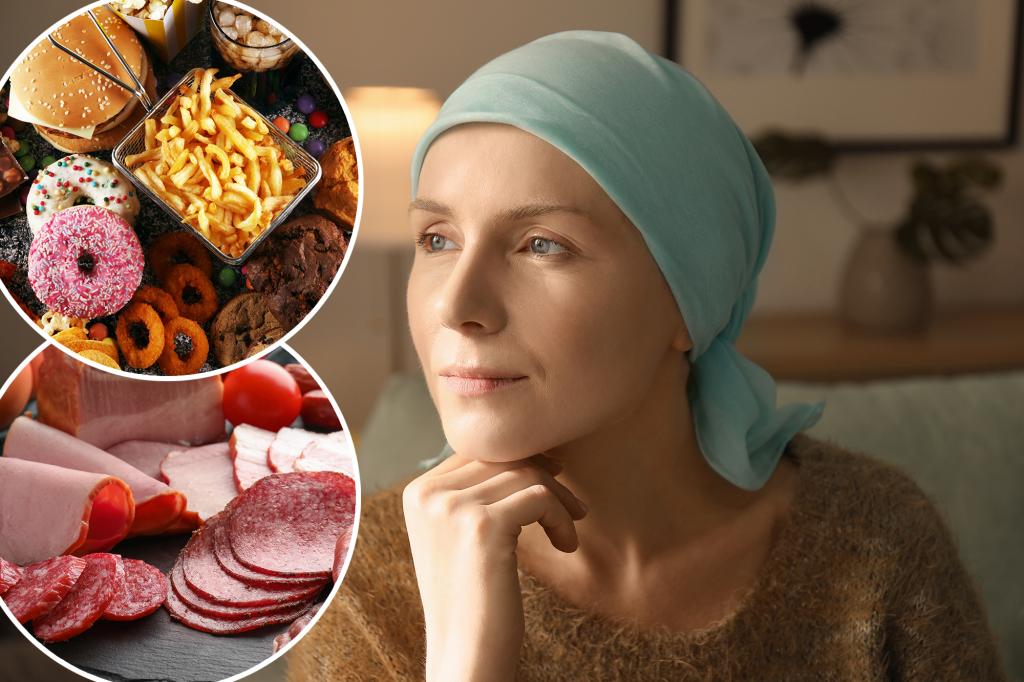The alarming increase in cancer diagnoses among young adults, particularly women and those in their 30s, has raised concerns among oncologists. The rise in cancer cases at such a young age is a shift from the past when cancer was more commonly associated with the elderly population. Experts have attributed this increase to factors such as poor dietary choices, specifically the consumption of ultra-processed foods and processed meat. These types of foods, which are high in sugar, saturated fat, and salt, are believed to have a detrimental effect on overall health and may contribute to the development of cancer. Research has indicated that mutations in the body caused by the consumption of these foods can diminish the body’s ability to combat pre-cancerous cells.
Ultra-processed foods, which constitute a significant portion of the US food supply, are generally low in essential nutrients and fiber. A recent study found that individuals who consumed a higher percentage of ultra-processed foods had an increased risk of developing certain types of cancers, such as head and neck cancer and cancer of the esophagus. Processed meat has also been classified as carcinogenic, with links to colorectal cancer. Furthermore, red and processed meat consumption has been associated with a higher likelihood of developing bowel cancer. The combination of nitrates in processed meats with compounds in the body may lead to cell damage, increasing the risk of cancer.
Dr. Coral Olazagasti, an assistant professor of clinical medical oncology, has expressed alarm at the trend of younger individuals being diagnosed with cancer. She stresses the importance of avoiding overly processed and unhealthy foods to reduce the risk of developing cancer. Nutritionist Matthew Lambert concurs, advising individuals to limit their intake of foods such as cakes, biscuits, pastries, sugary drinks, and fast food. Lambert emphasizes the lack of essential nutrients in ultra-processed foods, urging people to consume them in moderation.
Given the concerning increase in cancer cases among young adults, experts are calling for better dietary choices and stricter regulations on additives in food processing. Dr. Nicholas DeVito, an assistant professor of medical oncology, has highlighted the need for government intervention to promote healthier food options and reduce the availability of ultra-processed foods. He draws a parallel between the regulation of tobacco and the potential for similar efforts to address the issues related to ultra-processed foods. DeVito advocates for a multi-pronged strategy to tackle the content and availability of food, with the goal of reducing the negative impact of poor dietary choices on cancer rates.
In conclusion, the relationship between poor dietary choices, particularly the consumption of ultra-processed foods and processed meat, and an increased risk of cancer among young adults is a growing concern among oncologists. The rise in cancer cases in this demographic has prompted calls for individuals to make healthier food choices and for authorities to implement regulations to limit the availability of unhealthy foods. By reducing the consumption of ultra-processed foods and processed meats, individuals may decrease their risk of developing certain types of cancer. Collective efforts from health care providers, public health experts, and governments are needed to address the impact of poor dietary habits on cancer rates and promote overall health and well-being.


